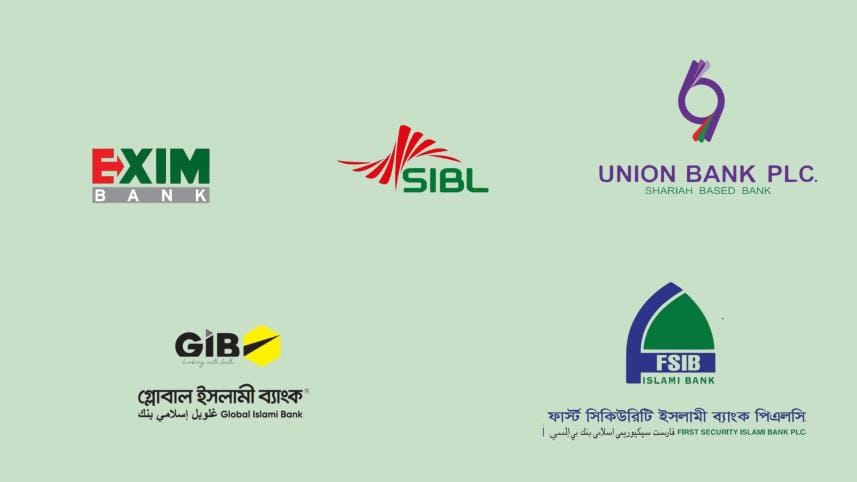Govt approves merger of five shariah-based banks

- Five troubled Islamic banks merged together
- Government pledges safeguard jobs and deposits
- Tk 35,000 crore capitalisation plan unveiled
- Forensic audits revealed alarming loan defaults
The interim government has approved the merger of five troubled shariah-based commercial banks into a new state-run Islamic lender named Sammilito Islami Bank Limited.
A meeting of the advisory council chaired by Chief Adviser Professor Muhammad Yunus approved the proposal yesterday.
After the meeting, Chief Adviser's Press Secretary Shafiqul Alam told a press briefing at the Foreign Service Academy that no employee of the merging banks would lose their job and no depositor would lose their savings.
The five banks to be merged are First Security Islami Bank, Union Bank, Global Islami Bank, Social Islami Bank and Exim Bank.
Alam said two names had been proposed for the new entity, United Islami Bank Limited or Sammilito Islami Bank Limited.
Under the merger process, all assets and liabilities of the five troubled banks will be combined into the new lender. All five are listed on the stock exchange.
The Bangladesh Bank said the new bank will have an authorised capital of Tk 40,000 crore, with a paid-up capital requirement of Tk 35,000 crore, according to the chief adviser's press secretary.
As per the preliminary capital plan, around Tk 15,000 crore in institutional deposits from existing depositors could be converted into equity through a bail-in process. The remaining Tk 20,000 crore would be provided by the government as capital support, said Alam.
Of this, the government will inject Tk 10,000 crore in cash and raise another Tk 10,000 crore by issuing Sukuk -- shariah-compliant financial instruments similar to bonds.
The merger initiative initially involved six banks, but ICB Islamic Bank was excluded because of an ongoing case with the High Court over its ownership structure.
Alam said the new state-run shariah-based bank will assume all assets and liabilities of the five merging lenders and continue regular operations.
At the beginning, the Finance Division will hold ownership of the bank on behalf of the government. This stake will gradually be transferred to the private sector, he told reporters.
According to the plan, the bank will bring in a strategic partner within three years and is expected to be fully privatised within five.
"Finally, it has been assured that through this merger process, no employee will lose their job, and no depositor will lose their savings," said Alam.
Central bank officials who are directly involved in the merger process said depositors of the merging banks would be allowed to withdraw up to Tk 2 lakh if they choose to close their accounts.
Larger deposits will be repaid in phases, while institutional depositors will be reimbursed through a separate mechanism, they added.
The merger is being carried out under the newly enacted Bank Resolution Ordinance 2025, which gives broad powers to restructure troubled banks.
The move follows forensic audits by international accounting firms earlier this year that showed an alarming level of financial distress in those five banks.
The audits found that non-performing loans (NPLs) accounted for 96.37 percent of total loans at First Security Islami Bank, 97.8 percent at Union Bank, 95 percent at Global Islami Bank, 62.3 percent at Social Islami Bank and 48.2 percent at Exim Bank.
As of May this year, combined deposits at these banks stood at over Tk 1.36 lakh crore, according to the Bangladesh Bank.
After the political changeover in August last year, the central bank dissolved the boards of these banks and appointed new ones. The forensic audit findings prompted the interim government to move forward with the merger.
Yesterday's advisory council meeting also approved the draft Depositor Protection Ordinance, which proposes setting up a Depositor Protection Fund to be managed through a designated account at the Bangladesh Bank.



 For all latest news, follow The Daily Star's Google News channel.
For all latest news, follow The Daily Star's Google News channel.
Comments